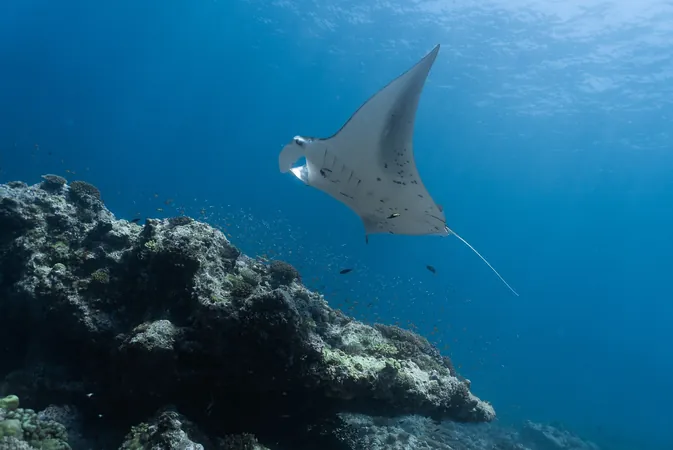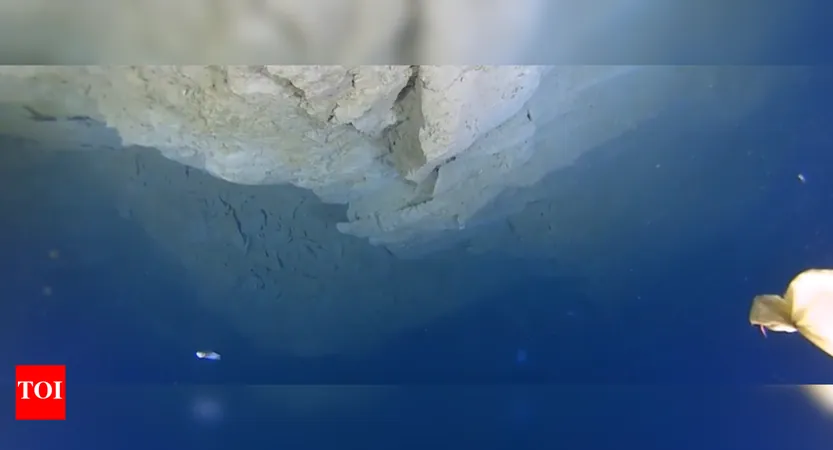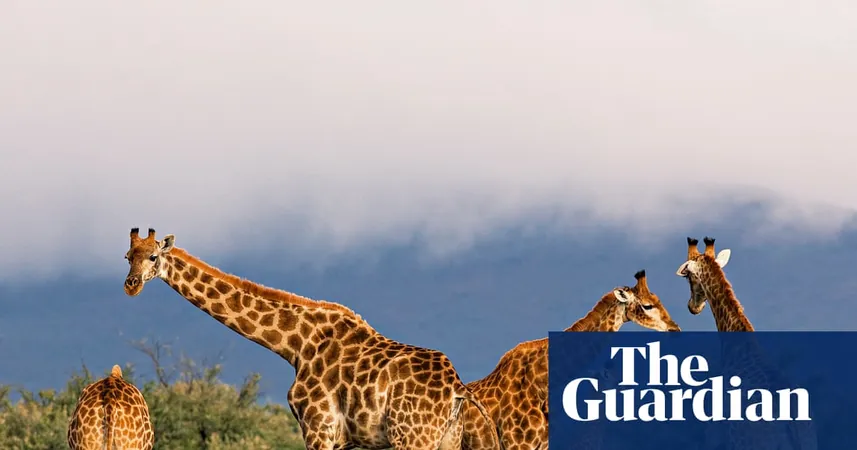
Unlocking the Ocean's Secrets: The Power of Massive Marine Protected Areas
2025-08-07
Author: Jacques
A Groundbreaking Study Reveals the Importance of Expansive MPAs
In a stunning new study, researchers emphasize how vast Marine Protected Areas (MPAs) are crucial for safeguarding the lives of large ocean creatures. Tracking sea turtles, manta rays, and seabirds in the breathtaking Chagos Archipelago MPA in the Indian Ocean, scientists found that 95% of these animals' movements took place within the colossal 640,000-square-kilometer protected area. This finding strongly indicates that such extensive zones are vital in supporting the migratory and breeding patterns of these wandering wildlife.
The Crucial Role of Huge Marine Protected Areas
Conducted by a collaborative team from Exeter and Heriot-Watt universities, along with the Zoological Society of London (ZSL), this pivotal research sheds light on the effectiveness of MPAs. While evaluating the protection given by a smaller hypothetical MPA of just 100,000 square kilometers, they discovered that seabirds would face a significantly higher risk, with only 59% of their locations safeguarded compared to the nearly complete protection for turtles and manta rays.
Defending Our Oceans: Implications for Future Conservation
Dr. Alice Trevail from the University of Exeter emphasized the vital importance of very large MPAs (VLMPAs) as they aim to meet the international target of 30% ocean protection by 2030. "Our research shows the undeniable value of the Chagos Archipelago VLMPA in securing diverse marine species that traverse vast distances in search of food and breeding grounds," she stated.
The Ecological Balance: Why These Species Matter
Dr. Ruth Dunn from Heriot-Watt University highlighted these animals' ecological roles: "From supporting huge populations of seabirds to helping fertilize coral reefs through their droppings, these creatures are integral to the health of marine ecosystems." Competently tracking the movements of hawksbill turtles and three seabird species, the study underscores the complex web of life within these crucial habitats.
Looking Ahead: Protecting Marine Biodiversity
As the Chagos Archipelago prepares for a change in sovereignty, set to integrate into Mauritius, the findings of this study couldn’t be more timely. They not only underscore the necessity of protecting these marine areas but also highlight critical zones for long-term conservation efforts to maintain the diverse megafauna that call these waters home.
Collaboration Leads to Breakthroughs
Ernesto Bertarelli, President of the Bertarelli Foundation, which funded the study, encapsulated its importance: "This research demonstrates the power of interdisciplinary collaboration in unlocking new insights into how expansive Marine Protected Areas provide essential lifelines for vulnerable species throughout their life cycles."









 Brasil (PT)
Brasil (PT)
 Canada (EN)
Canada (EN)
 Chile (ES)
Chile (ES)
 Česko (CS)
Česko (CS)
 대한민국 (KO)
대한민국 (KO)
 España (ES)
España (ES)
 France (FR)
France (FR)
 Hong Kong (EN)
Hong Kong (EN)
 Italia (IT)
Italia (IT)
 日本 (JA)
日本 (JA)
 Magyarország (HU)
Magyarország (HU)
 Norge (NO)
Norge (NO)
 Polska (PL)
Polska (PL)
 Schweiz (DE)
Schweiz (DE)
 Singapore (EN)
Singapore (EN)
 Sverige (SV)
Sverige (SV)
 Suomi (FI)
Suomi (FI)
 Türkiye (TR)
Türkiye (TR)
 الإمارات العربية المتحدة (AR)
الإمارات العربية المتحدة (AR)